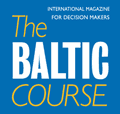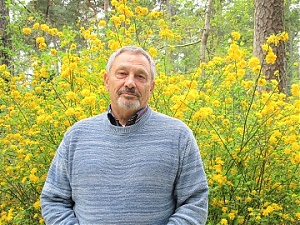
All rights reserved.
You may not copy, reproduce, republish, or otherwise use www.baltic-course.com content
in any way except for your own personal, non-commercial use.
Any other use of content requires the hyperlink to www.baltic-course.com.

Printed: 30.06.2025.
 PrintOECD’s review shows Latvian main problems
PrintOECD’s review shows Latvian main problems
 |
|---|
Present OECD recommendations, compared to the previous two
years ago*), cover in addition to the economic development survey some
reflections on environmental issues and sustainability. The OECD experts are
right: Latvia needs a fresh push: from new guidance in economic policy to
bio-circular and sustainability’s approaches.
*) Eteris E. “OECD’s economic survey for Latvia: better policies for better lives”,
in:
http://www.baltic-course.com/eng/analytics/?doc=133804&ins_print
Actually, most of the issues covered by the OECD analysis**)
are not far away from the previous assessments of 2017: probably the first one
has been even more profound; may be because it was a first independent
assessment of Latvian socio-economic development in modern time. Besides, not
much happened during two years in Latvian political economy, i.e. for about a
year the establishment has been involved in the Saiema’s elections and later on
in the forming of a new government. Probably, a couple of reforms did occur:
e.g. in SMAs taxation and regional consolidation, to name a few.
Actually, I think that Latvian political establishment doesn’t
need any “assessments”; the elites are quite aware of the existing political
economy’s problems –and even the ways to deal with them! In parties’ programs
last fall I’ve seen plenty of right and progressive promises.
A great puzzle is: why the “political economists” don’t just
do what they have to and what is required; why not to formulate priorities and
slowly but persistently implement them?! Well, these are seemingly quite rhetoric
questions…
**) Note: the OECD documents can be seen in the OECD’s web-link at: http://www.oecd.org/economy/latvia-economic-snapshot/,
as well as in:
https://oecdecoscope.blog/2019/05/29/latvia-working-towards-stronger-and-more-inclusive-growth/,
and http://www.oecd.org/environment/country-reviews/oecd-environmental-performance-reviews-latvia-2019.htm.
Inquisitive readers can make their “independent analysis” separately, while comparing the OECD “evaluations” (the Latvian yearly taxpayers’ price for being an OECD member is about $ 300 million) with the country’s realities. However, a short digest is available to serve as a helping hand (see in the BC’s rubric “Modern EU” my article: Eteris E. “Tackling Latvian economy and sustainability: OECD’s assessment”,
in:
http://www.baltic-course.com/eng/modern_eu/?doc=149553&ins_print
I think it is important to draw readers’ attention to something
else, i.e. the new global and EU ideas about so-called perspective growth in
the states. Latvian authorities have two main responsibilities: one is internal,
i.e. peoples’ wellbeing (in this way the state’s tasks are formulated in
Latvian constitution), the other one is international, which is about
climate change and sustainability. There are some “instruments” to implement
the first Latvian liability and that task is not complicated: as it is purely
within the national political economy’s drive. Here the representative
democracy has a lot of recipes how to achieve positive results.
More complicated is the second one, where the global and the
EU strategies often serve as stumble blocks in national development: all the
efforts need additional financing.
From the EU side, there are two main “instruments”: the EU’s
general 2020-strategy (there is even “sectoral” strategy, i.e. the “long-term vision for a prosperous, modern, competitive
and climate-neutral economy by 2050”. There is as well a sub-regional
one –the EU Baltic Sea Region Strategy, EUBSRS (during 11-13 June it will
celebrate a decade in existence).
All these issues in detail are described in my recent book: Eteris
E. Latvia in Europe and the world: growth
strategy for a new centennial. –Zinatne Publish., Riga, Latvia. 2018. – 208
pp. ISBN 978-9934-549-55-7. Reviewed in: http://www.baltic-course.com/eng/book_review/?doc=145602;
Besides, on “strategic energy vision” by 2050 see:
https://ec.europa.eu/energy/en/topics/energy-strategy-and-energy-union/2050-long-term-strategy
No doubt, that specifically challenging is the global aspect
in Latvian growth: at the end of 2015 –during the UN General Assembly –Latvian
President and the Prime Minister signed a Declaration on sustainable
development goals (SDGs); they promised to implement these goals (as well as
other 192 states) by 2030. It is a serious Latvian international liability: the
world will judge country’s achievements according to SDGs and Latvian prestige
in the world greatly depends on it.
What is at stake here?
The global “message” is that countries around the world –Latvia
included- have to define the national priorities according to the following
scheme: quality of life, sustainable economy, food quality, fossil free energy
mix, sustainable cities and bio-diversity in resources.
Is Latvia’s establishment ready for such priorities? The
country’s global prestige is at stake…